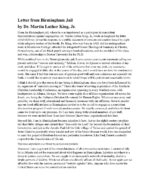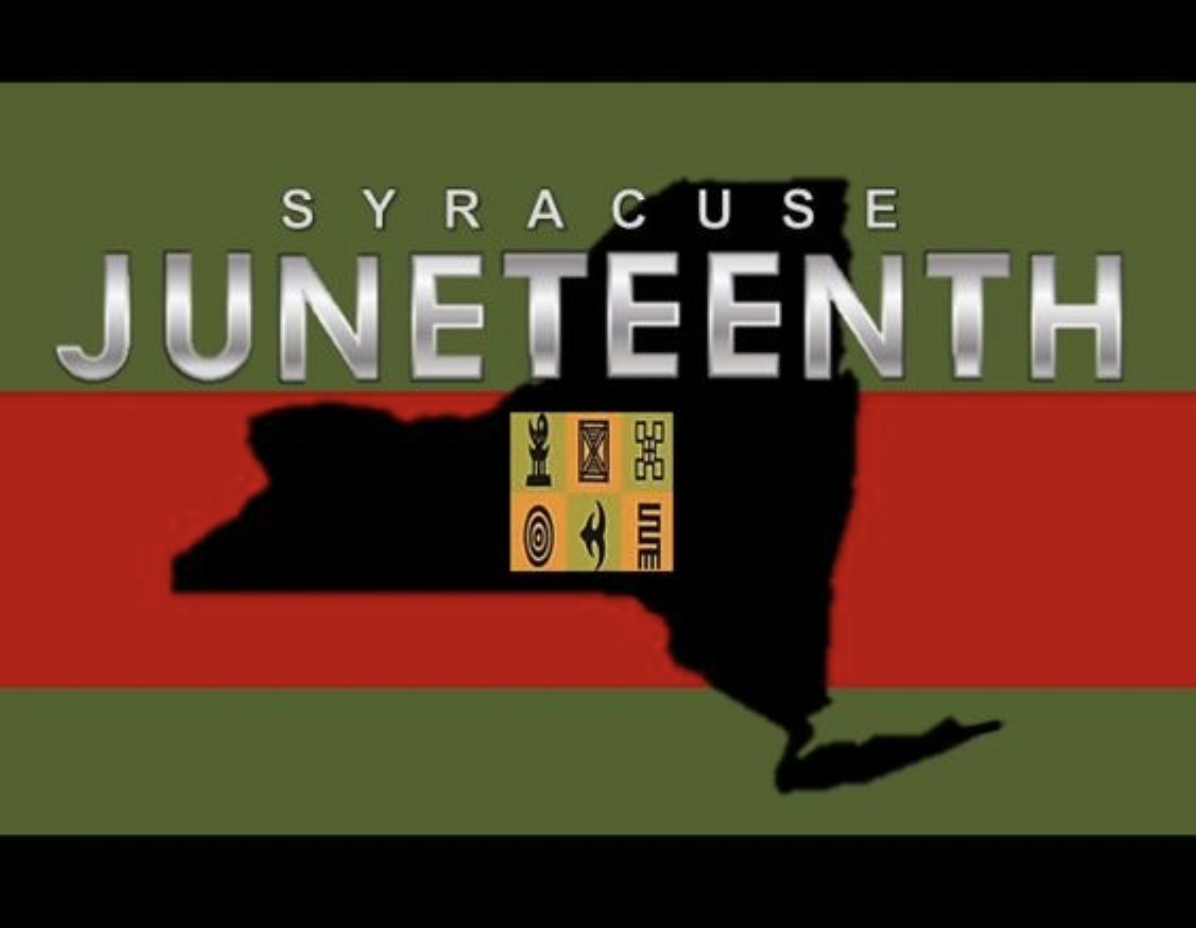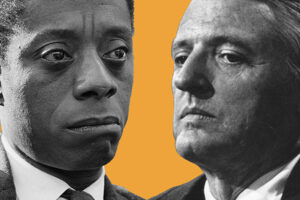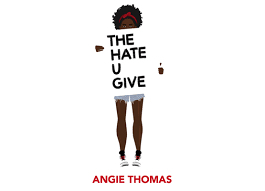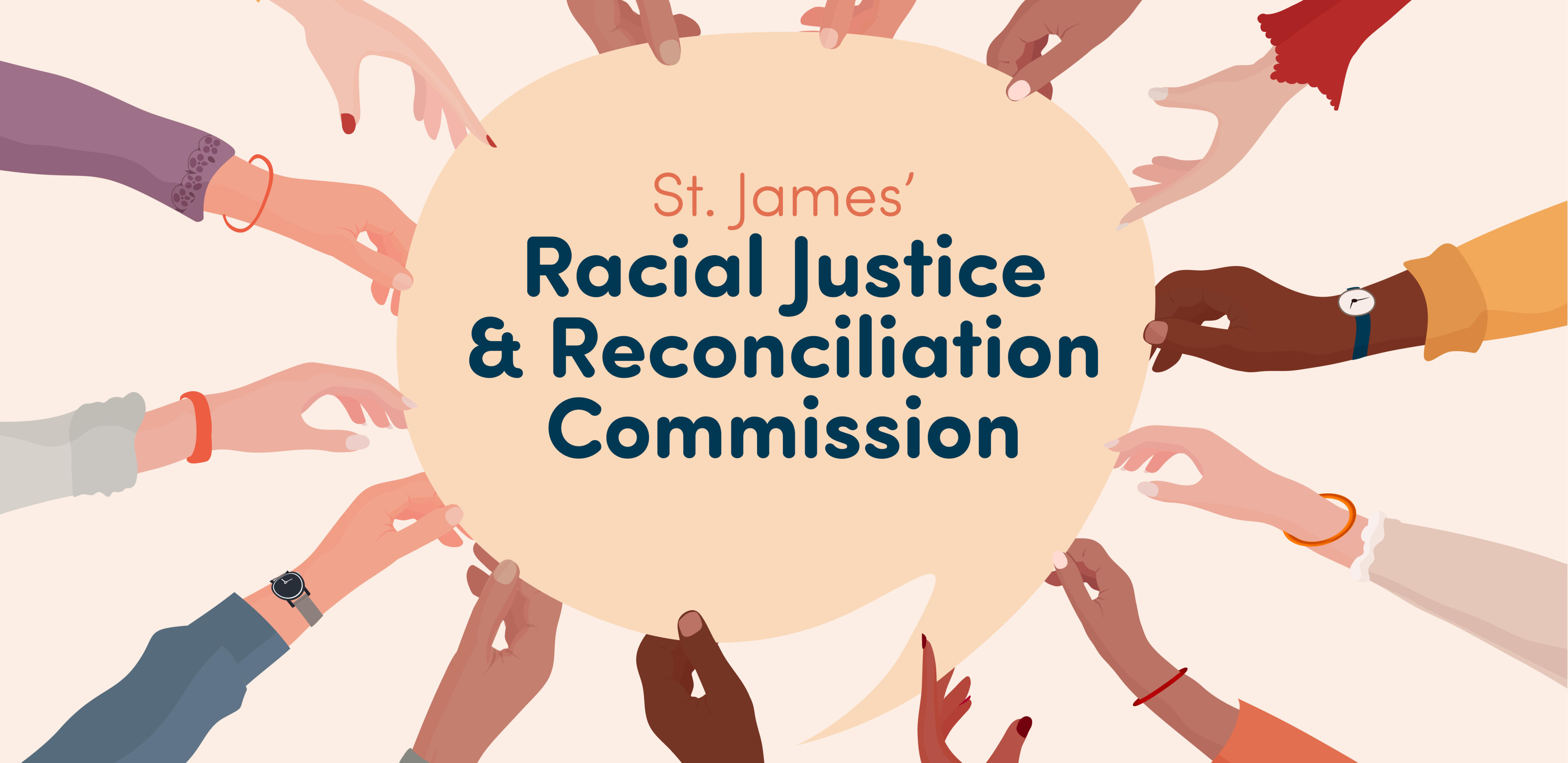
Five to Life Acapella
Sunday, July 17 – 10:45 and 12pm

What is Juneteenth?
Every year, communities across the nation gather to commemorate the day of emancipation from slavery in Texas—the last of all the states to abolish slavery—and that day is June 19th, 1865.
Prior to the celebration of Juneteenth, African Americans living in Central New York celebrated what is referred to as the “Emancipation Jubilee” around January 1, the day on which the Emancipation Proclamation technically took effect. The first Emancipation Jubilee held in Syracuse was on January 20, 1863. Speakers included Rev. Samuel May and Rev. M.E. Strieby of the American Missionary Association. Between 1865 and 1877, while similar celebrations took place in Central New York, the holiday did not become an annual one.
– SyracuseJuneteenth.orgJuneteenth became recognized as an official holiday in New York in 2020.
Auburn Juneteenth
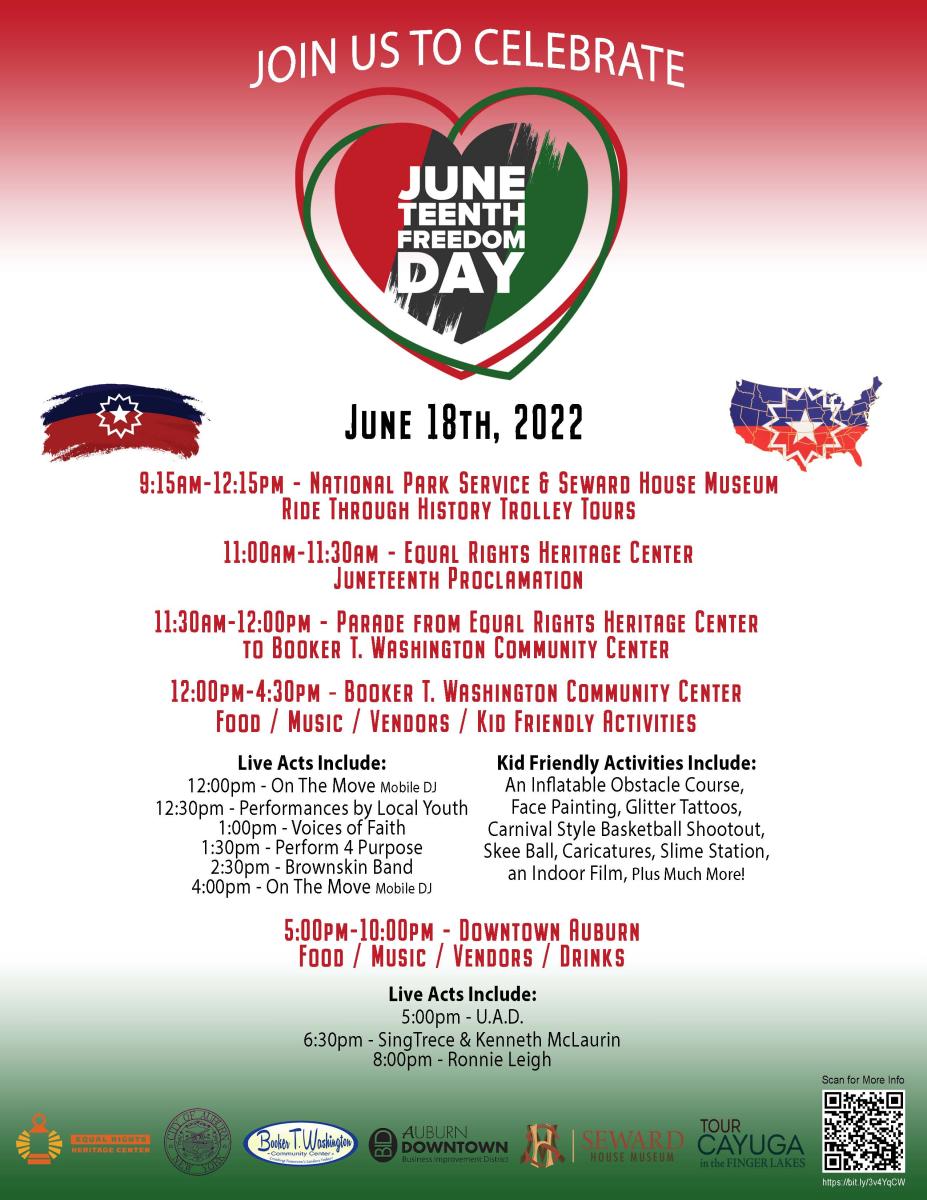

What Color is God? Sharing Our Experiences of Sacred Art
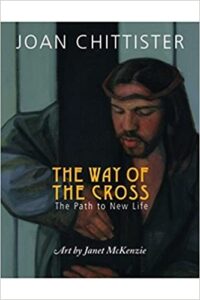 Be sure to take time to view the moving art display of Janet Mackenzie’s Stations of the Cross in the St. James’ window wells. Walk the stations using the guided meditation found in Joan Chittister’s book, the Way of the Cross: The Path to New Life. A special Thank you to Debra-Rose & Santo Brillati on purchasing and displaying this inspirational artwork presentation. Books are located at the front of the church for use in walking the Stations.
Be sure to take time to view the moving art display of Janet Mackenzie’s Stations of the Cross in the St. James’ window wells. Walk the stations using the guided meditation found in Joan Chittister’s book, the Way of the Cross: The Path to New Life. A special Thank you to Debra-Rose & Santo Brillati on purchasing and displaying this inspirational artwork presentation. Books are located at the front of the church for use in walking the Stations.
NY Times Book Review: “The Fire is Upon Us,” by Nicholas Buccola (Oct. 18, 2019)
The Atlantic: “The Famous Baldwin-Buckley Debate Still Matters Today (Dec. 2, 2019)
NYTimes Book Review: The Fire is Upon Us by Nicholas Buccola (Oct. 18. 2019)-CLICK HERE
The Atlantic: “The Famous Baldwin-Buckley Debate Still Matters Today-CLICK HERE

4:00pm-6:00pm
St. James’ Church Skaneateles
96 E. Genesee Street Skaneateles, New York
Cost: Suggested Donation of $10 per adult
(Masks Required for all who enter the St. James’ Church Building)
Facebook.com/StJamesSkaneateles or @StJamesSkaneateles
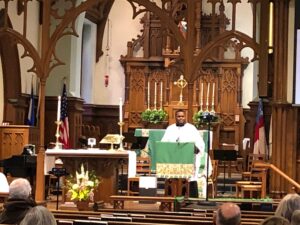 On Sunday, January 23rd, St. James’ Church Welcomed Rev. Terrance A. King, Pastor, St. James A.M.E. Zion Church, Ithaca, NY. who preached at all three worship services! Click Here to View Service on Jan. 23rd. CLICK HERE for MORE about Rev. King.
On Sunday, January 23rd, St. James’ Church Welcomed Rev. Terrance A. King, Pastor, St. James A.M.E. Zion Church, Ithaca, NY. who preached at all three worship services! Click Here to View Service on Jan. 23rd. CLICK HERE for MORE about Rev. King.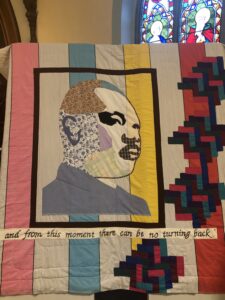 The Story of the “Spirit of the Beloved Community” quilt-On Display in St. James’ Nave Sunday, January 13th!
The Story of the “Spirit of the Beloved Community” quilt-On Display in St. James’ Nave Sunday, January 13th!The words of Dr. Martin Luther King, Jr.
St. James’ RJRC beckons you to join in the wonder and learning the group has experienced over the past year. Beginning in January 2022, the RJRC group will offer the Sacred Ground Studies, proffered by the national Episcopal Church,
The 10-part series is open to all and is especially designed to help white people talk to other white people. It is built around a powerful on-line curriculum of documentary films and readings that focus on Indigenous, Black, Latino and Asian/Pacific American histories as they intersect with European American histories. There are examples of these on the national Episcopal Church web¬site under “Sacred Ground” as an introduction for you to explore.
Members of the RJRC group, who have participated in this study, use words such as “life-changing”, “revealing”, “thought-provoking” and “direction resetting”. Please feel free to speak with Linda Lavery or Pam Stewart of the RJRC about their experiences. Due to the number of sign ups, there will be only one discussion group beginning on January 13, 2022.
St. James’ Sacred Ground Zoom Adult Study (10 sessions)
Thursdays (twice a month)
10:30 a.m. – 12:00 p.m.
Illustrates how government policies and private practices helped create the segregated suburbs
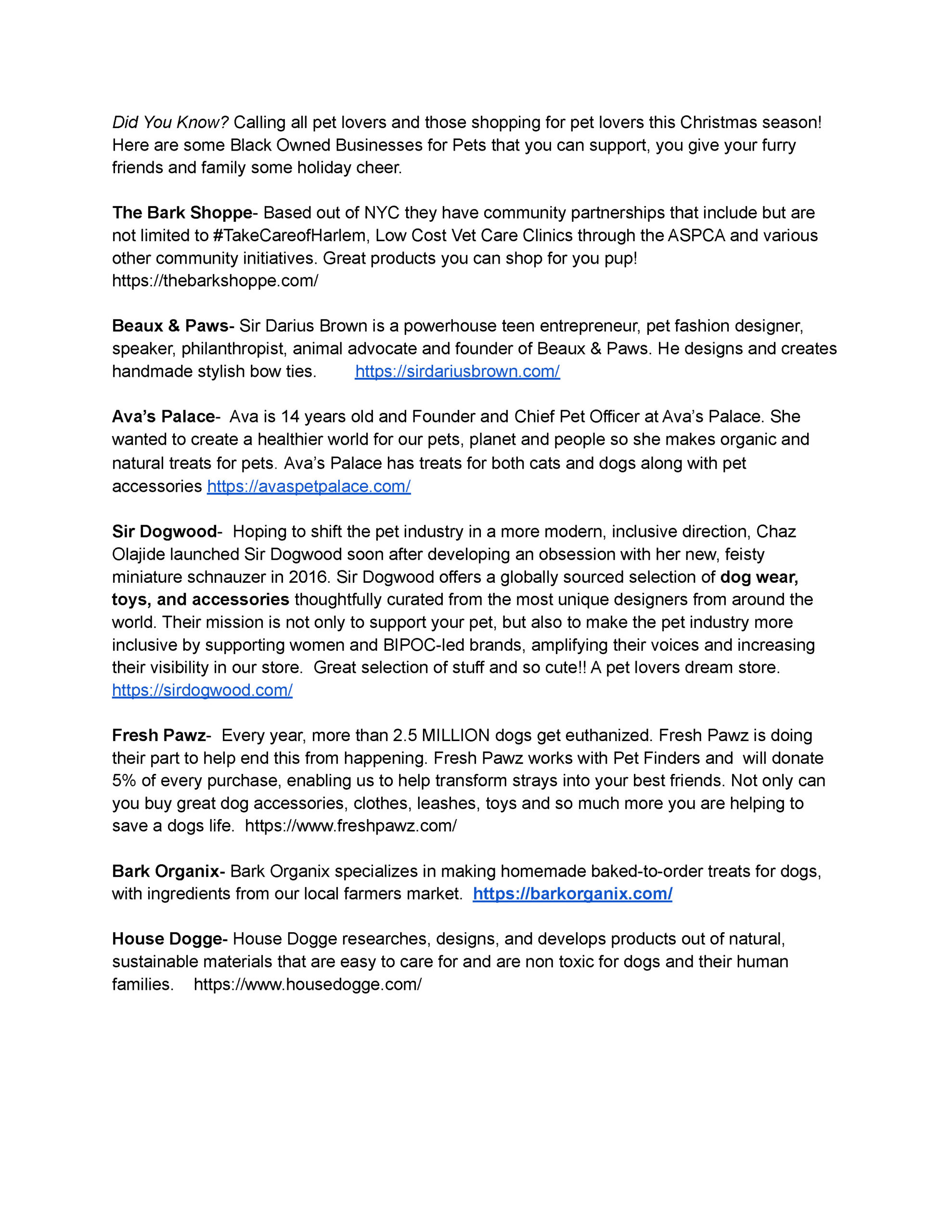
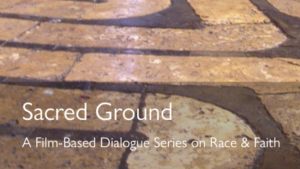 The Commission is also engaging as a group in Sacred Ground.–CLICK HERE FOR MORE INFO
The Commission is also engaging as a group in Sacred Ground.–CLICK HERE FOR MORE INFOSacred Ground is a film and readings based dialogue series on race, grounded in faith. Presented by the national Episcopal Church, the series invites groups to walk through America’s
history of race and racism focusing on indigenous, Black, Latino and Asian/Pacific American histories as they interact with European/American history. Its purpose is to provide a prayerful resource for respectful and transformative dialogue on race and racism. It is an attempt to be responsive to the profound challenges currently existing in our society.
Groups meet for ten sessions to discuss the films and readings assigned for that session. These assignments focus on key chapters of race and racism in US History as well as some of
the latest thinking by scholars and practitioners of racial healing, racial equity and whiteness. They invite exploration of how people of color have been harmed by racism, and how white people have been hurt in other ways, creating a shared, if deeply unequal, brokenness that compels us to overcome this legacy in deliberate partnership.. The series, framed as a spiritual journey, is grounded in Christian faith. It is intended to remove impediments that inhibit our understanding, so that we will be moved and can move others to banish racism.
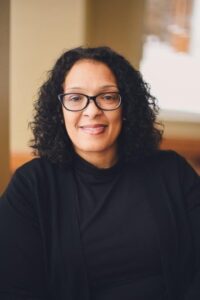 June 2021 Topic-READING MATERIAL-CLICK HERE
June 2021 Topic-READING MATERIAL-CLICK HEREAbout the Speaker:
Dr. Rhoda Overstreet-Wilson was born and raised in Auburn New York. She received her Doctorate in Education from St. John Fisher College in July 2020 after successfully defending her dissertation on Gender Microaggression. She is currently the Executive Director of the Westminster Manor Adult Home in Auburn. Prior to working with the elderly, she worked for over twenty years in the juvenile justice system, advocating for youth and their families in a system plagued with institutional barriers designed for Black, Brown, and disenfranchised people. Dr. Wilson serves as the Board President of the Booker. T. Washington Community Center, the Vice President of the Auburn Cayuga Branch of the NAACP, and an Auburn Enlarged City School District board member. She believes that the development of intentional partnerships is the key to change and purposefully cultivates community connections that give her a platform to be a change agent.
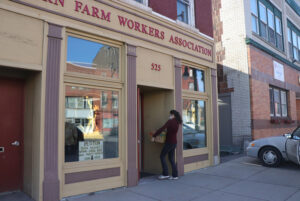 May 2021 Topic
May 2021 Topic April 2021 Topic
April 2021 Topic